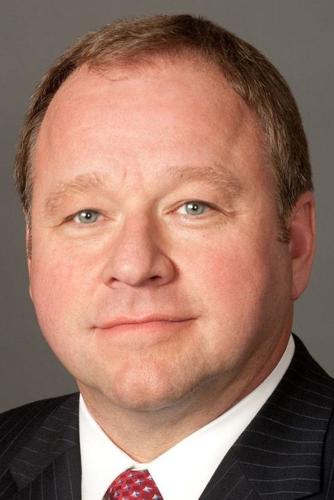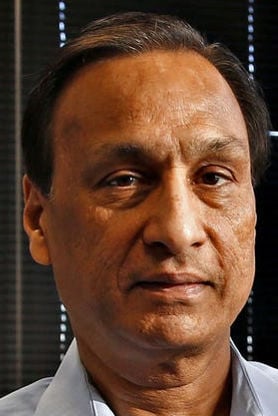PHOENIX — The gravy train keeps rolling for the men, and a couple women, who run Arizona’s largest companies.
Propelled by a strong economy, median pay last year hit a new record of $5.72 million among the CEOs of the 32 largest companies based in the state, according to a study by The Arizona Republic that focused on corporations worth at least $1 billion. That compared to a previous high of $4.79 million in 2017.
In addition to CEOs, 34 other senior executives at larger Arizona companies reaped at least $3 million each last year, up from 23 who did so in 2017. These include chief financial officers, chief operating officers, executive vice presidents and various division heads.
The pay escalation was triggered by higher profits and rising stock prices in a strong economy. Profits got a boost from a significant cut in corporate income taxes. Of the 32 Arizona corporations on our list, 26 were profitable last year, and nearly all have enjoyed rising share prices in recent years.
Sign of rich-poor gap
Executive pay is a visible indicator of widening income disparities in the workplace.
CEOs and other top executives not only draw higher salaries than mainstream workers but also receive special option grants and/or stock awards that can add millions of dollars. At larger companies, CEOs also receive enhanced retirement benefits and sometimes bonuses and perks like company cars and private use of corporate aircraft.
Arizona CEOs earned more than 80 times what their own employees on average made last year, with the disparities wider at companies that have large global workforces, especially in Asia.
Workers in Maricopa County, where nearly all of the state’s bigger corporations are headquartered, earned $50,500 on average last year, according to the Bureau of Labor Statistics.
The Republic’s analysis of CEO and non-CEO pay focuses on public corporations with stock market values or capitalizations of at least $1 billion. Pay is lower for CEOs running the 160 or so smaller public companies headquartered in the state.
Generally, larger company size, bigger profits and rising stock prices correspond to higher executive pay.
But there are exceptions, such as the big pay packages for CEOs at relatively small companies such as Axon Enterprise, Grand Canyon Education and Verra Mobility.
Methodology matters
Public corporations must disclose pay for top executives in a standardized chart, called the Summary Compensation Table, which is disclosed in annual proxy reports. The Republic adjusts this by subtracting the value of current-year options and stock awards that haven’t yet been cashed in or vested.
But we add in the value of realized, actual gains from options and stock awards from prior years. Our pay average of $5.79 million is based on these adjusted numbers.
The differences can be striking, as illustrated by the pay totals disclosed by Axon Enterprise, the Scottsdale company formerly known as Taser International.
Axon reported a whopping $246 million last year in compensation for CEO Patrick Smith — an unparalleled pay total for any Arizona executive, ever.
But after we stripped out the value of option grants and restricted stock awards that might not hit pay dirt, Smith’s adjusted pay comes in at a comparatively modest $24.5 million, including realized gains from prior-year option grants. His actual salary last year was just $70,000.
“We would just like to reiterate that Rick Smith was granted a stock option award with a fair value of $246 million last year; he was not paid this amount,” said Carley Partridge, a spokeswoman for the company, in an email note.
“There is no guaranteed payout, which is unlike most other CEOs’ compensation plans.”
Smith’s $246 million pay package will be paid in full only if Axon reaches a series of capitalization and operational goals over a 10-year period. Some of those massive option grants could expire worthless.
Individual pay leaders
Based on adjusted compensation, Donald Slager had the highest statewide pay last year at $29.6 million. He’s the CEO of trash hauler Republic Services, Arizona’s most valuable corporation, based on stock-market value.
Smith was next at $24.5 million, followed by $14.5 million for Donald Brandt, CEO of Pinnacle West Capital Corp., the parent of electric utility Arizona Public Service.
Lawrence Mehren, the CEO of Accelerate Diagnostics, the only Tucson-based firm large enough to make the list, had the smallest adjusted compensation at $375,000 (or $716,000 from the summary table). His pay wasn’t much above the median $194,000 earned by all workers at Accelerate Diagnostics, a medical-testing company.
The highest-paid woman was Sheryl Palmer, CEO of Taylor Morrison Home Corp., whose $6.88 million adjusted compensation ranked her at No. 16 on the list.
As noted, CEO pay disparities tended to be widest at Arizona corporations with large foreign workforces. For example, the CEOs of ON Semiconductor, First Solar and GoDaddy all earned more than 300 times the median employee pay at those entities. Accelerate Diagnostics had the smallest ratio of CEO pay to that of mainstream employees.
Spokespeople for a handful of top-paid Arizona CEOs would not comment for this article.
Shareholders show support for pay
Pay for the CEOs running most Arizona companies is dwarfed by that earned by top executives at some of the nation’s biggest companies.
Median compensation at corporate giants rose to $12 million last year, up 7% from 2017, according to a study by Equilar and The Associated Press. The survey tracked companies that are in the large-stock Standard & Poor’s 500 index and focused on numbers in the Summary Compensation Table.
As eye-popping as CEO pay totals might appear, shareholders at these companies typically don’t object. Investors occasionally vote on executive pay in nonbinding resolutions, and these “say on pay” votes routinely pass.
Nationally, companies so far this year have received favorable votes of 91% on average for their CEO-pay packages, reported Semler Brossy, a consulting firm focused on executive compensation. Outright “no” votes are extremely rare.





















